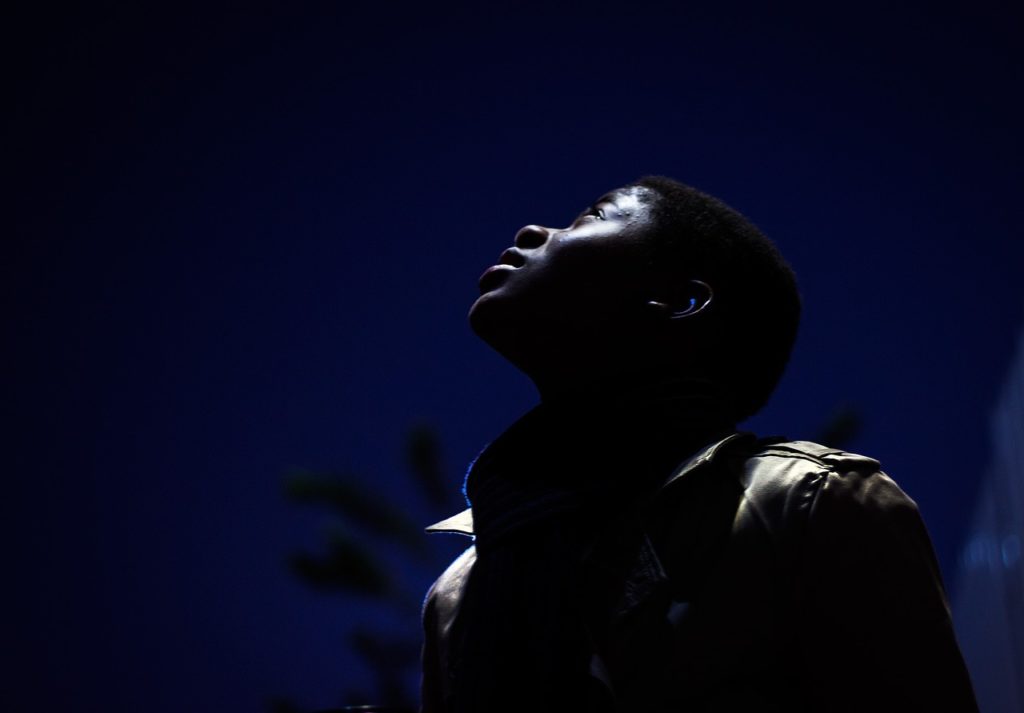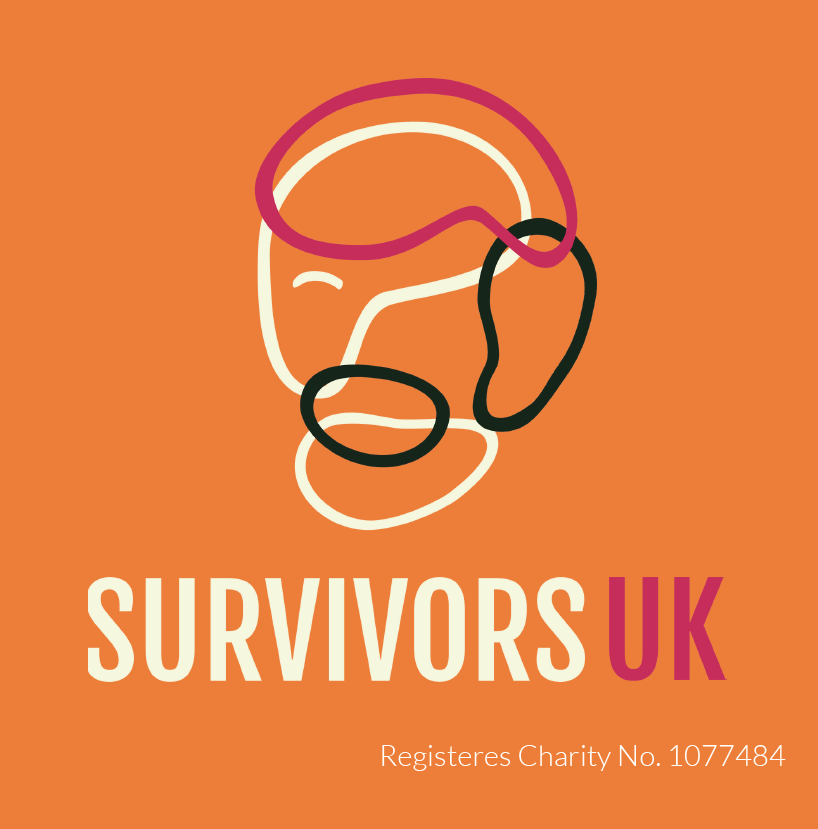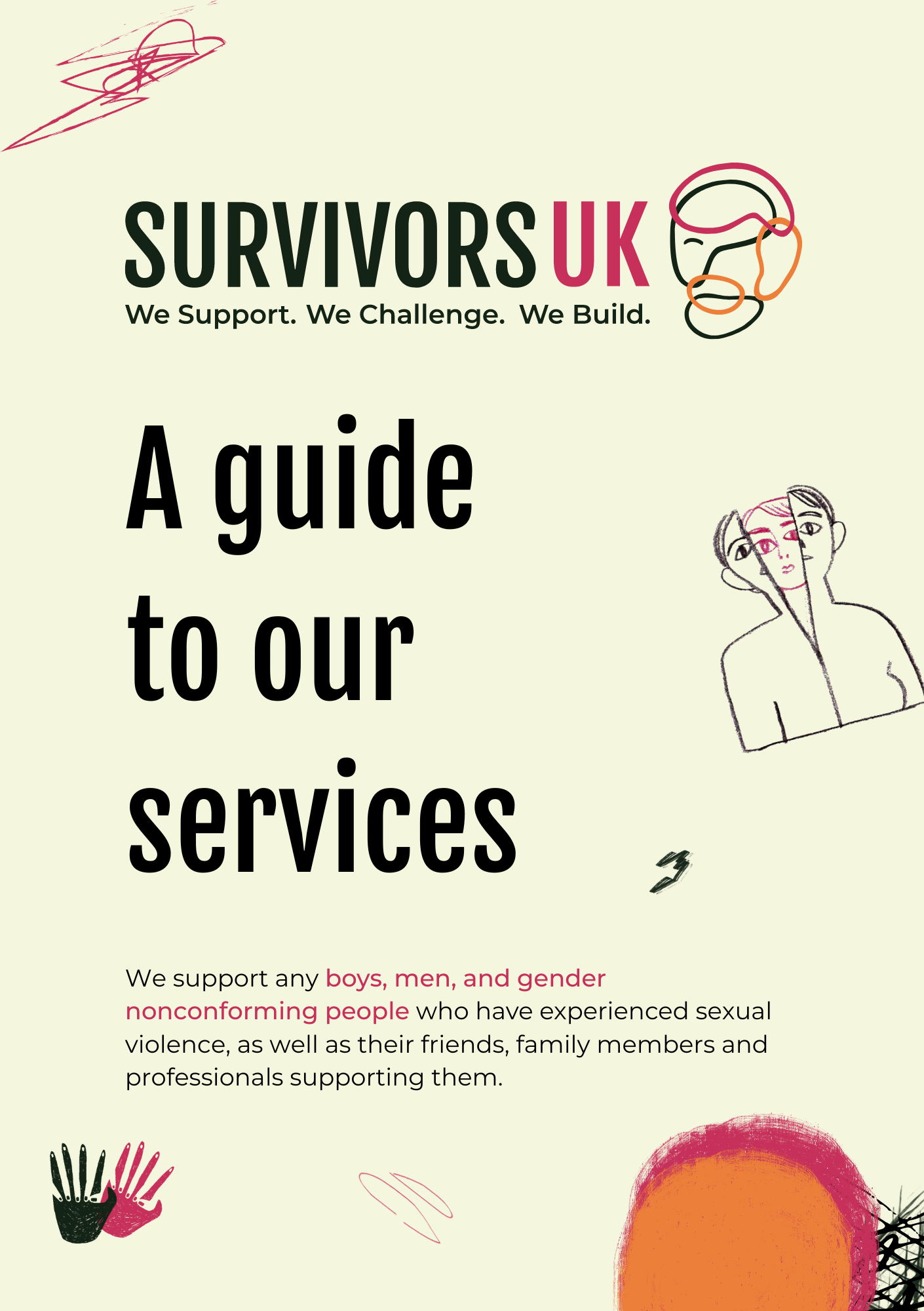
Reflections On Racial Trauma
As SurvivorsUK honours Black History Month, Support Counsellor Dionne St. Hill shares a series of reflections on trauma as experienced through the prism of race.
In the first of four mini features she shares the visceral impact of Racial Trauma
Not everything that is faced can be changed, but nothing can be changed until it is faced.
– James Baldwin
In that moment he understood his pain; in that moment he understood his suffering. That which had existed outside of his awareness, in that moment found a name.
The despair, the dissonance, the anxiety, atrophy, emotional displacement, patterns of thinking and punitive coping mechanisms… the stored trauma, the physical residue of threat, suddenly found a home outside of his body.
His ordeal needed a name and today he found one that fitted – Racial Trauma… he repeated the words slowly, pausing between each expression, inhaling their power, feeling them regurgitate at the back of his throat, swallowing quickly, pushing back the feeling to be sick. His body was holding what his mind could not.
Closing his eyes, he placed his hands on his tummy and rocked… back and forward, forward and back; breathing slowly in through his nose and even slower out through his mouth. He could feel… finally he could feel.
‘A form of race-based stress’, the American Psychological Association describes Racial Trauma as reactions by Black, Asian and Indigenous individuals to ‘dangerous events and real or perceived experiences of racial discrimination. Such experiences may include threats of harm and injury, humiliating and shaming events, and witnessing racial discrimination toward other people of colour. Although similar to Post Traumatic Stress Disorder, Racial Trauma is unique in that it involves ongoing individual and collective injuries due to exposure and re-exposure to race-based stress.’
Racial Trauma takes residence in mind, body, soul, and psyche, tightly gripping and restricting movement and elevation of self in a way that those who consciously or unconsciously benefit from White Privilege often don’t notice, experience, or recognise.
Anger, depression, shame, and numbing often squeeze their way into any attempt to process Racial Trauma; for it’s a complex form of psychic violence – implicit, explicit aggression. Micro, macro, its amorphous form sharpens its internal danger. It may not leave its physical mark, but the emotional and psychological damage leaves a trail of rutted scar tissue.
He was a survivor of an attack, repeated attacks over time… spiritual, cultural, prejudiced, anti-Black biased attacks on his very being. The air, invisibly full of an insidious toxin that had taken residence inside him as soon as he left ‘home’ as a child and landed in an all-White primary school in London. Hyper visible, yet unseen.
The unconscious embrace of his all-Black world in his small corner of the Caribbean had disappeared, only to be replaced by a whitewash. He was too young to recall the colonial residue of shadeism. His only felt sense was that of loss. That tiny Black planet in his galaxy is now replaced by a constellation of biases – structural, institutional, cultural, racial, and gendered.
The tears flowed down his face, both in pain and relief – as if in that moment he was able to reframe and rewrite the narrative that had locked him out of his life for nearly 30 years.
As a Black therapist dedicated to healing through reflection and writing for therapeutic purposes, those moments in our therapy zoom room encapsulate the need for Black traumatised individuals seeking therapeutic refuge, to be seen, heard, and held by empathic Black practitioners.
We recognise how important that is at SurvivorsUK. I bring my heart and soul to my healing work and am committed to deepening my understanding of Black psychology as I work at relational depth with an African centred therapeutic approach with clients of African, Caribbean, and South Asian origin.
My work as a Support Counsellor with SurvivorsUK and as a Group Facilitator in our twice-monthly group BAM – an online reflective, community and discussion space specially created for Black, Asian and Mixed Race or Dual Heritage survivors – includes soothing the pain of being a Black survivor in predominantly White and biased spaces; unpacking the toxic tangle of childhood trauma, violence, rape, child sexual abuse, sexual assault, emotional abuse, racial gaslighting, othering, fear and fetishization.
As a therapist I am dedicated to unpacking the complex trauma of Black British individuals of African, Caribbean, and South Asian origin, those who have survived sexual violence, be it as a child or as an adult.
I believe the therapeutic and healing relationships I am privileged to have and hold at SurvivorsUK honour our ancestors and break cycles of trauma, rupture, and dysfunction as a divine offering to future generations.
Our therapeutic work here at SurvivorsUK with its experiential, cultural, and spiritual focus often reveals profound ways to create and experience sacred healing spaces where we may discover and share our untold stories.
View this post on Instagram
If you would like to be a part of BAM our twice monthly group for Black and Asian survivors of rape and child sexual abuse, please email [email protected]
We meet every second and fourth Monday in the month between 5 pm and 8 pm. A zoom link and invitation will be sent to you before each meeting.
We connect and explore contemporary and powerful themes and experiences every month… just some of our recent subjects include The Inner Child, Identity and Intersectionality, Violence and Healing, Love and Relationships, Micro Aggressions and Heroes and Father Figures.
Coping Strategies for Racial Trauma from writer and social scientist @ogurchukwuu
The Mental Body
Unplug. Take some time away from viral videos and media. Vicarious trauma can create more anxiety and stress.
Pause. Take some time off from work or school if you can. This will help reduce the mental load you have to deal with during the day.
Talk. Release the thoughts in your mind with a therapist if you can. A therapist or emotional support worker who knows how to make space for your racial trauma.
The Emotional Body
Feel. Allow yourself to express sadness, anger and fear so that they do not remain trapped in your body.
Gather. Surround yourself with people who give you a safe space to express your emotions. Your emotions deserve a soft-landing place.
Write. Take the time to journal about your experiences and accept the emotions that emerge as you do so.
The Physical Body
Rest. Take a moment to sleep and take naps. Rest is reparational practice for people whose bodies have been exploited.
Move. Walk, dance, stretch, run or shake your body. Allow your body to release the pent-up energy within you.
Self-Massage. If this feels comfortable, release tension stored in the muscles and tissues in your body.
The Spiritual Body
Meditate. Take a moment of reflection to remind you how divine you are. It is easy to forget how special you are when you experience racism,
Reclaim. Read, listen to, watch, or go to events that can help you regain a sense of pride in your racial identity.
Organise. Engage with and support local anti-racist organisations that can help you feel hopeful and empowered.






